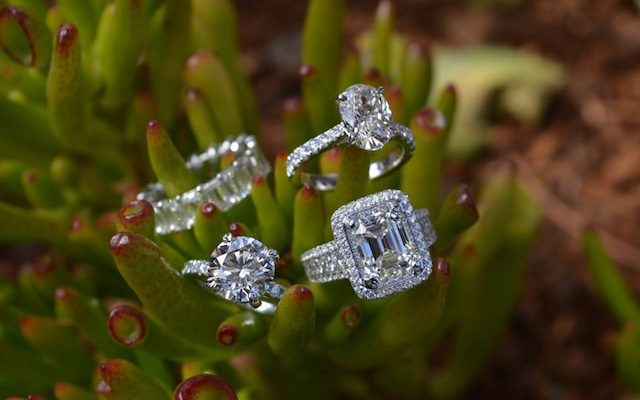In recent years, an exciting new trend has emerged, revolutionising the world of engagement rings – lab-grown diamonds. London, known for its vibrant fashion scene and innovative design, has quickly become a hotspot for this contemporary choice in engagement jewellery. With increasing concerns about ethical sourcing, environmental impact, and budget constraints, many couples now opt for lab-grown engagement rings as a stylish and responsible alternative to traditional mined diamonds. Explore London’s thriving lab-grown engagement ring scene, highlighting the unique benefits and stunning designs that captivate the hearts and minds of couples across the city. Whether you are a trendsetter looking for a one-of-a-kind piece or a conscious consumer wanting to make a statement, London’s lab-grown engagement ring scene offers the perfect blend of style, sustainability, and sophistication.
Notable Jewellers and Their Signature Designs
Notable jewellers in London’s lab-grown engagement ring scene are leading the way with their signature designs. One such jeweller is Natalie Perry, known for her delicate and minimalist aesthetic. Perry’s signature design features a solitaire lab grown diamond set in a thin, gold band, allowing the beauty of the diamond to take centre stage. Her rings are sought after for their timeless elegance and ethical sourcing.
Another notable jeweller is Alice van Cal, whose designs are nature-inspired and often feature intricate floral motifs. Using lab-grown diamonds, she creates stunning engagement rings that are both unique and sustainable. Van Cal’s signature design incorporates a cluster of lab-grown diamonds in a rose gold setting, capturing the essence of a blooming flower. Her rings are beloved for their romantic and whimsical appeal.
Lab grown engagement ring London scene is filled with talented jewellers pushing design boundaries while prioritising ethical practices. These notable jewellers and their signature designs testify to the growing popularity of lab-grown diamonds for couples who want a contemporary and responsible choice for their engagement rings.
The Environmental and Ethical Impact of Lab Grown Diamonds
Lab grown diamonds are created in a laboratory using advanced technology replicating the natural diamond-growing process. This process eliminates the need for mining, which can have devastating environmental consequences. Traditional diamond mining has been linked to deforestation, soil erosion, and water pollution, destroying natural habitats and ecosystems. In contrast, lab grown diamonds are created in a controlled environment, using minimal resources and producing minimal waste. This makes them a more environmentally friendly choice for those conscious of their carbon footprint.
Ethically speaking, lab grown diamonds also offer a more responsible alternative. The diamond industry has been associated with child labour, unfair wages, and dangerous working conditions. By choosing lab grown diamonds, couples can be confident that their engagement ring is free from these ethical concerns. Lab grown diamonds are produced in a controlled setting, ensuring fair and safe working conditions for the lab technicians involved in their creation.
Furthermore, lab grown diamonds also offer a more affordable option for those with budget constraints. Traditional mined diamonds can be expensive due to the high demand and limited supply. Lab grown diamonds, on the other hand, are more readily available and can be produced at a lower cost. This allows couples to enjoy the beauty and sparkle of a diamond engagement ring without breaking the bank. Overall, lab grown diamonds offer a contemporary and responsible choice for couples seeking an alternative to traditional mined diamonds.
Maintenance and Care Tips for Your Lab Grown Diamond Ring
When it comes to maintaining and caring for your lab grown diamond ring, there are a few key tips to remember. First and foremost, it is important to clean your ring regularly to keep it looking its best. You can do this by soaking it in warm, soapy water and gently scrubbing it with a soft toothbrush. Avoid using harsh chemicals or abrasive cleaners, as this can damage the ring.
Another important tip is to store your lab-grown diamond ring separately from other jewellery to prevent scratching. Consider investing in a soft jewellery pouch or box to keep your ring safe when it is not being worn. Additionally, having your ring inspected by a professional jeweller at least once a year is a good idea. This will ensure that any loose stones or prongs can be repaired before they become more serious.
In terms of everyday wear, it is best to remove your lab grown diamond ring when participating in activities that could cause damage, such as sports or gardening. It is also wise to remove your ring before applying any beauty products, as certain chemicals can cause discolouration or damage to the stone. By following these maintenance and care tips, you can help to ensure that your lab-grown diamond ring remains beautiful and lustrous for years to come.

